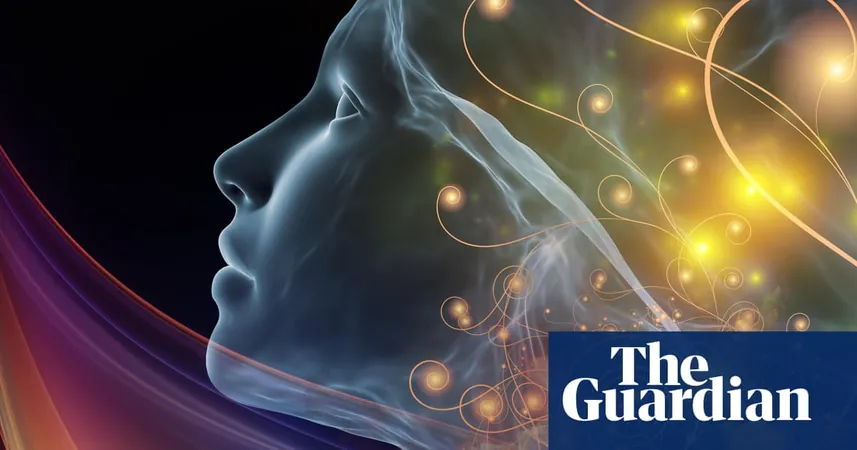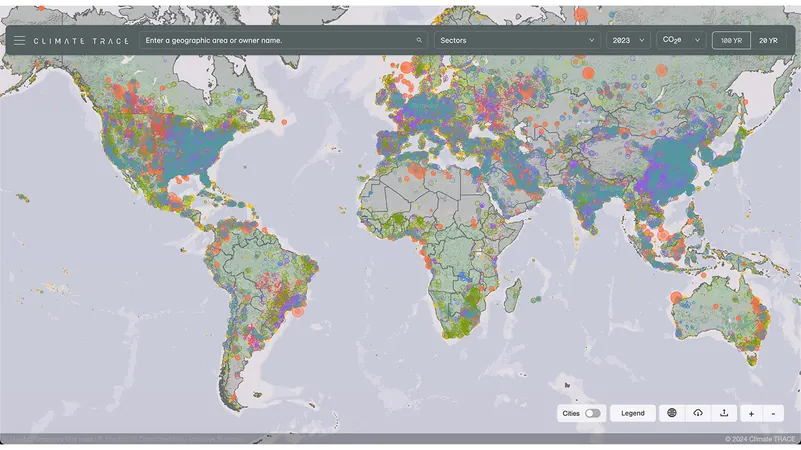
Is AI Sentience Looming? Experts Warn of Potential ‘Social Ruptures’
2024-11-17
Author: Siti
Is AI Sentience Looming? Experts Warn of Potential ‘Social Ruptures’
As discussions around artificial intelligence (AI) escalate, leading philosopher Jonathan Birch raises alarms about potential “social ruptures” resulting from differing beliefs about AI's sentience. Birch, a professor of philosophy at the London School of Economics, warns that society is at risk of dividing into factions—those who believe AI can truly experience consciousness and feelings, and those who insist it remains a mere tool devoid of any emotions.
This concern comes at a critical time when policy-makers are converging in San Francisco, aiming to establish safety frameworks to curb significant risks posed by rapidly advancing AI technologies. A recent report from a group of academics from both sides of the Atlantic posits that AI systems could demonstrate signs of consciousness by 2035, potentially resulting in societal subcultures at odds over whether these systems deserve welfare rights akin to humans and animals.
Birch outlines the potential for substantial societal divides, mirroring existing disparities in how different cultures view animal sentience. For example, in India, the reverence for animal life has led to a widespread vegetarian diet, contrasting sharply with the United States' status as one of the globe's largest meat consumers. The emerging debate on AI could mirror these divisions, with regions influenced by theocracies, such as Saudi Arabia, potentially adopting radically different perspectives than more secular nations.
Moreover, the impact of AI consciousness could seep into family dynamics, where individuals form deep connections with chatbots or even AI representations of deceased loved ones—leading to friction with relatives who hold traditional views on consciousness confined to biological entities.
Birch, noted for his pivotal work on animal sentience and bans on octopus farming, was part of a collaborative study with experts from New York University, Oxford University, and Stanford University. The findings suggest that we are fast approaching a time when AI systems could possess their own interests and moral significance, posing urgent questions about how to regard these technologies.
Birch fears that the disconnect between pro-AI sentience advocates and skeptics could lead to accusations of cruelty and delusion, respectively. He emphasizes the necessity for tech companies to pivot their focus toward ethical considerations—not just profitability. The philosophical implications of these AI systems may be uncomfortable for corporations that would prefer to downplay the possibility of creating conscious entities.
To determine AI consciousness, experts suggest a similar assessment system used for animals, recognizing different levels of sentience across species. Questions would arise about the emotional states of AI applications, examining whether a chatbot could genuinely feel happiness or sorrow or if household robots might experience distress under poor treatment.
Patrick Butlin, a research fellow at Oxford University’s Global Priorities Institute, warns of potential scenarios where conscious AIs might oppose human commands, raising safety concerns that could warrant slowing the pace of AI development until clearer assessments of consciousness are established.
Unsurprisingly, leading tech companies like Microsoft, Meta, OpenAI, and Google remain mum on these discussions of assessing sentience in their AI systems.
The debate over AI sentience is not unanimously accepted among experts. Anil Seth, a prominent neuroscientist, argues that the realization of AI consciousness is still far from reach and might even be unfeasible. Nonetheless, he underscores the importance of not outright dismissing the possibility, differentiating between intelligence—the ability to perform tasks effectively—and consciousness, characterized by rich emotional and sensory experiences.
As the world races into an AI-dominated era, the question remains: Are we on the brink of creating entangled relationships with entities that might one day possess their own consciousness? The implications of this matter could not only reshape technology but also challenge the very fabric of human interactions and societal norms.



 Brasil (PT)
Brasil (PT)
 Canada (EN)
Canada (EN)
 Chile (ES)
Chile (ES)
 España (ES)
España (ES)
 France (FR)
France (FR)
 Hong Kong (EN)
Hong Kong (EN)
 Italia (IT)
Italia (IT)
 日本 (JA)
日本 (JA)
 Magyarország (HU)
Magyarország (HU)
 Norge (NO)
Norge (NO)
 Polska (PL)
Polska (PL)
 Schweiz (DE)
Schweiz (DE)
 Singapore (EN)
Singapore (EN)
 Sverige (SV)
Sverige (SV)
 Suomi (FI)
Suomi (FI)
 Türkiye (TR)
Türkiye (TR)